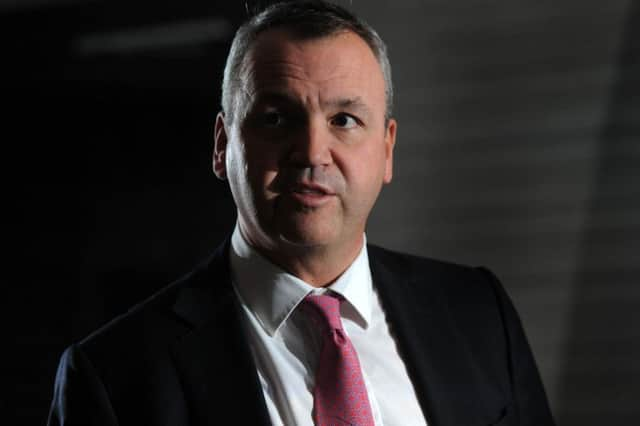Asda woes continue as sales suffer with 5.1 per cent drop


Sales at Leeds-based Asda fell 5.1 per cent in the 12 weeks to May 22, according to Kantar Worldpanel. Sales at Tesco fell 1.0 per cent year on year, Sainsbury’s was down 1.2 per cent and Morrisons dropped 2.1 per cent.
This was a good showing for Bradford-based Morrisons as the fall was due to store closures and will provide a boost for chief executive David Potts and his new management team.
Advertisement
Hide AdAdvertisement
Hide AdEdward Garner, director at Kantar Worldpanel, said: “Morrisons still have their shoppers. They have in-store excitement and theatre. Their reputation is that they’re close to farmers and producers.”
He added that Morrisons’ decision to stop price matching against discounters Aldi and Lidl has not harmed the group.
“Morrisons have always had a reputation as a good, solid grocer with a gritty, value for money approach. There is a remaining loyalty among shoppers for Morrisons.”
He said that Asda’s decision to market itself on price has failed to boost sales.
Advertisement
Hide AdAdvertisement
Hide Ad“Banging on about price isn’t going to help Asda. Price has been usurped as a topic by Aldi and Lidl,” said Mr Garner.
“Asda needs to concentrate on what Aldi and Lidl can’t do – the wide selection it sells and the store size. These are weaknesses at Aldi and Lidl.
“Asda still has shoppers going through its doors, but it’s not good. They haven’t been that hot on pricing and usually they’re quite keen.”
Aldi increased sales by 11.4 per cent and Lidl sales rose 14.2 per cent, although this was boosted by the two groups’ ambitious store opening programmes.
Advertisement
Hide AdAdvertisement
Hide Ad“While the big four are struggling to keep their market share what’s clear is that consumers aren’t flocking away from their stores – their combined shopper numbers have dropped only 0.2 per cent in the latest 12 weeks,” said Mr Garner.
“In fact, 94 per cent of Aldi and Lidl shoppers still visit at least one of the four major retailers every four weeks. However, consumers’ spend is increasingly being shared with other growing outlets which also include Waitrose, the Co-operative and Iceland and average household spend for the big four has dropped by 2.9 per cent.”
Kantar Worldpanel said that Morrisons continues to be affected by store disposals.
A spokesman for Morrisons said: “At our recent update, we said that our actual sales – stripping out the reduction in store space over the last year – were rising by 0.7 per cent compared to last year. Customers are responding to Morrisons serving them better, offering more competitive prices and strengthening our supermarkets.”
Advertisement
Hide AdAdvertisement
Hide AdKantar said the market was essentially flat, posting value growth of just 0.1 per cent.
Sainsbury’s 1.2 per cent sales drop, which led to a drop in its market share to 16.2 per cent, was driven by a decline in pack sales after the retailer shifted away from promotions to everyday price cuts.
Waitrose has achieved a record share of the grocery market at 5.3 per cent, increasing sales by 2.1 per cent.
“Quietly Waitrose gets another record,” said Mr Garner.
“You’ve got the disruptive influence from Aldi and Lidl at one end and they are clobbering Asda, but Waitrose is not about price. It’s about everything else.”
Advertisement
Hide AdAdvertisement
Hide AdThe Co-operative continued its recent strong run, posting sales growth of 3.3 per cent for the second period in a row to achieve a market share of 6.2 per cent.
“The Co-op is doing very well. Their stores in market towns and high streets, focusing on convenience, are doing well,” said Mr Garner.
Tesco was the best performer among the big players with sales down just 1.0 per cent, showing signs of stabilisation for Britain’s biggest supermarket chain in a tough market.
Kantar Worldpanel said Tesco has seen signs of stabilisation following historic declines over the past two years.